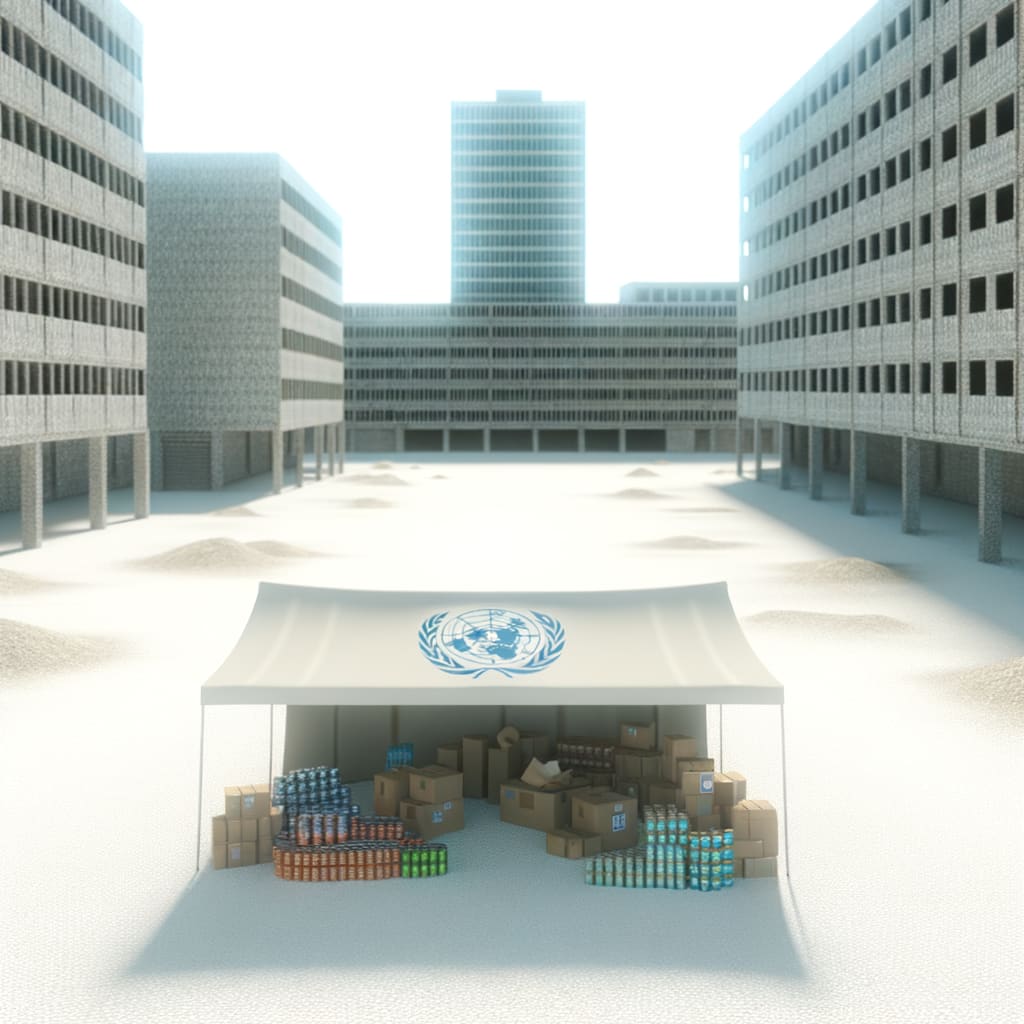Israel Intensifies Offensive in Gaza; U.S. and Global Reactions Diverge
In a series of escalating conflicts, Israel has ramped up its offensive in Gaza, leading to widespread destruction and a growing humanitarian crisis. With the Israeli army pushing deeper into Gaza City, the situation is becoming increasingly dire, with the United Nations Children's Fund (UNICEF) stating that a child is injured or killed every 10 minutes in Gaza.
The Background
The ongoing conflict has seen Israel targeting key figures in Hamas, the militant group controlling Gaza. The Israeli Defense Forces (IDF) confirmed the killing of Abu Obeida, the masked spokesperson for Hamas's armed wing, who had been a source of hope for Palestinians but was seen as a form of 'psychological terror' by Israel. Despite such targeted assassinations, Hamas continues to function, with no viable alternative emerging so far.
Simultaneously, the IDF is preparing to expand its offensive, with plans to slow or halt aid entry into northern Gaza. This move, expected to lead to the evacuation of hundreds of thousands of residents, has sparked outrage and concern, with critics arguing that Israel has achieved nothing apart from destruction.
Global Reactions Diverge
The Israeli offensive has resulted in a split in global opinion. A recent Harris Poll revealed a generational divide in U.S. attitudes towards the conflict, with 60% of voters aged 18-24 expressing greater support for Hamas, while older demographics showed a growing backing for Israel.
Meanwhile, U.S. President Donald Trump stated that Israel's actions in Gaza are damaging its influence in Congress. Israel was the strongest lobby I’ve ever seen. They had total control over Congress, and now they don’t,
Trump said, highlighting the changing public perception in the U.S.
Increasing Concern Over Humanitarian Crisis
The ongoing offensive has led to a significant humanitarian crisis in Gaza. With Israel planning to slow or halt aid into parts of Gaza, concerns are growing over the potential for increased starvation and malnutrition. The Red Cross has stated that a Gaza City evacuation would be 'impossible,' estimating that only 10,000 out of one million residents have left the city.
Reports have also emerged of increasing despair among Gazan residents, with the choice being to stay and die, or leave towards nowhere.
UNICEF has called Gaza the most dangerous place in the world for children,
with nearly one million children in need of psychosocial support.
Conclusion
As the conflict intensifies, concerns are growing over the potential for a prolonged war and its impact on the civilians caught in the crossfire. With no clear end in sight, the global community continues to watch with a mixture of concern and condemnation, and the calls for a ceasefire grow louder by the day.

